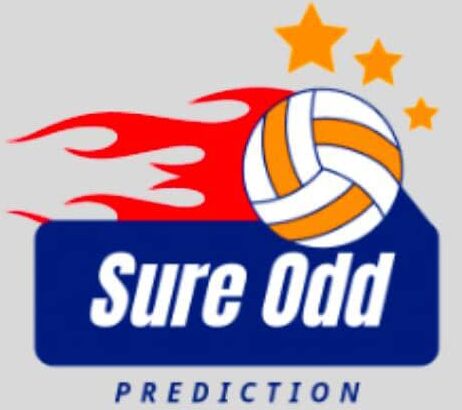Arsenal vs Shakhtar Donetsk 22/10/2024 Predictions and Lineups
Arsenal vs Shakhtar Donetsk 22/10/2024 Predictions and Lineups
A match between Arsenal and Shakhtar Donetsk would bring together two clubs with distinct styles and histories, each representing a different footballing tradition. Arsenal, one of the Premier League’s most historic clubs, known for their attractive, possession-based football, would face Shakhtar Donetsk, a Ukrainian powerhouse known for blending Brazilian flair with Eastern European resilience.
Arsenal’s Strengths:
Arsenal, under manager Mikel Arteta, have seen a revival in recent seasons, returning to the top of English football with a modern, dynamic style of play. Arteta’s Arsenal plays a fluid, attacking system, focusing on high pressing, quick transitions, and technical football. Arsenal’s key players, such as Bukayo Saka, Martin Ødegaard, and Gabriel Jesus (as of the 2023-24 season), bring creativity, pace, and clinical finishing to the side. Arsenal’s ability to control the tempo of a game, particularly in midfield, makes them dangerous against any opponent.
The Gunners’ defense has also been strengthened with players like William Saliba and Ben White, offering a balance between physicality and ball-playing ability. This solidity at the back allows them to play with more confidence and push forward without leaving too many gaps in defense. Arsenal’s experience in the Premier League, arguably the toughest domestic league in the world, prepares them for high-pressure matches, especially in European competitions.
Shakhtar Donetsk’s Approach:
Shakhtar Donetsk, despite playing in the Ukrainian Premier League, have consistently punched above their weight in European competitions. Known for recruiting and developing talented Brazilian players alongside homegrown Ukrainian stars, Shakhtar play an entertaining, attacking style of football. Players like Mykhailo Mudryk (until his transfer in early 2023) highlighted their ability to develop world-class talents. Shakhtar have a tradition of playing with technical flair, particularly in their forward line, while maintaining the physical robustness required to compete in Europe.
Given their experience in the UEFA Champions League and Europa League, Shakhtar have earned a reputation as a dangerous team capable of upsetting bigger clubs. Despite the challenges posed by the ongoing conflict in Ukraine, Shakhtar’s players have shown incredible resilience, often playing home games away from their city, yet continuing to perform at a high level in international competitions.
Tactical Battle:
Tactically, Arsenal’s approach would likely be to dominate possession, using their fast, technical players to break down Shakhtar’s defense. Arsenal’s wide players, especially Bukayo Saka and Gabriel Martinelli, could stretch Shakhtar’s backline, creating space for Ødegaard to pull the strings in the midfield and dictate play. Arsenal’s ability to overload the wide areas and use their full-backs in attacking roles could pose a significant threat to Shakhtar’s defense.
Shakhtar, meanwhile, would likely focus on a more balanced approach, mixing defensive solidity with quick counter-attacks. Shakhtar’s strength lies in their ability to transition from defense to attack rapidly, using their technical attackers to exploit spaces left by teams that commit players forward. Arsenal’s high pressing could leave them vulnerable to these fast breaks, and Shakhtar would be looking for opportunities to exploit gaps, particularly in wide areas or behind Arsenal’s defense. Shakhtar’s midfielders would also be tasked with disrupting Arsenal’s rhythm, applying pressure and forcing turnovers in key areas.
Key Matchups:
- Bukayo Saka vs. Shakhtar’s Full-backs: Saka’s pace and dribbling ability make him a constant threat down the right wing. Shakhtar’s left-back would need to be at the top of their game to contain him, and any mistakes could lead to dangerous crossing opportunities or shots on goal.
- Shakhtar’s Counter-Attack vs. Arsenal’s Defense: Shakhtar’s quick transitions would be their main weapon. If they can bypass Arsenal’s press and find space in behind the defenders, their fast attackers could cause problems for Arsenal’s backline. This makes Shakhtar’s Brazilian attackers, who are known for their skill and creativity, key to unlocking Arsenal’s defense.
- Midfield Battle: Ødegaard vs. Shakhtar’s Defensive Midfield: Ødegaard’s ability to control the game, make incisive passes, and drive Arsenal’s attack is crucial. Shakhtar would need to find a way to limit his influence, perhaps by assigning a defensive midfielder or pressing him high up the pitch. If Ødegaard is given time and space, he could pick apart Shakhtar’s defense with his vision and creativity.
Atmosphere and Intangibles:
The Emirates Stadium, Arsenal’s home ground, would provide a significant advantage for the Gunners. Arsenal’s fans have a history of creating an intense atmosphere for big European nights, and the support of the home crowd could help push them to dominate the game. However, Shakhtar have proven themselves resilient, particularly in difficult circumstances, and their players have shown remarkable mental strength. Playing away from home in high-pressure environments is nothing new to them.
Shakhtar’s unity and fighting spirit would be important factors in this match. As a club that has faced significant adversity, they often play with a sense of pride and determination, which can make them dangerous opponents, even against Europe’s biggest clubs.
Possible Outcomes:
Arsenal would likely enter the match as favorites, particularly given their strong squad and tactical discipline. If they can control the game, use their attacking players effectively, and avoid leaving themselves vulnerable to counter-attacks, they would be in a good position to win the match. However, Shakhtar’s ability to play with freedom, combined with their technical quality, means they could spring a surprise, especially if they capitalize on Arsenal’s mistakes or exploit defensive gaps.
A tightly contested match could see Arsenal relying on their superior depth and experience to pull through, but Shakhtar’s unpredictability and resilience make them a team that cannot be underestimated. In European football, surprises are always possible, and Shakhtar would relish the opportunity to cause an upset against one of England’s giants.


Comments are closed.